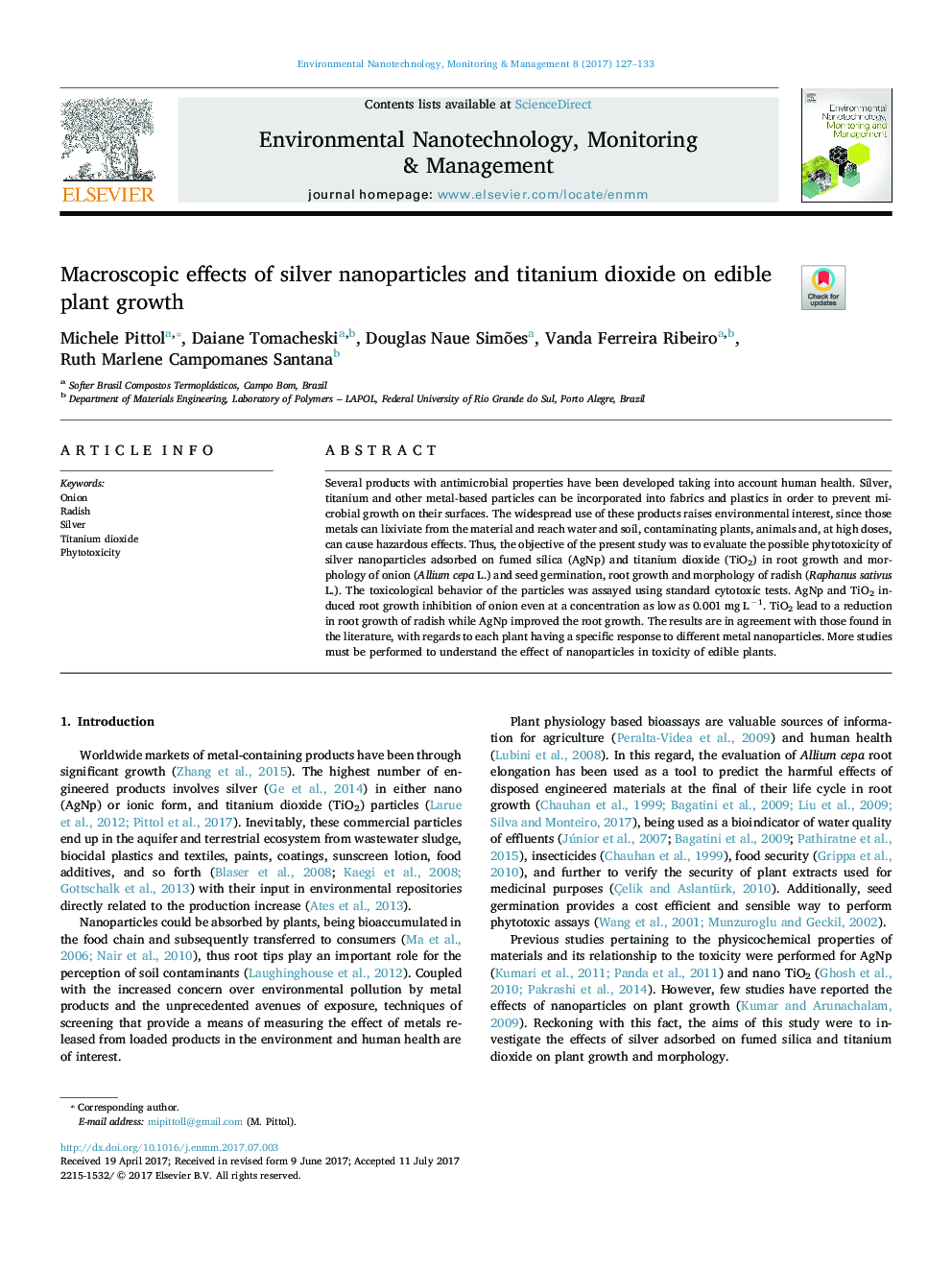| Article ID | Journal | Published Year | Pages | File Type |
|---|---|---|---|---|
| 5748494 | Environmental Nanotechnology, Monitoring & Management | 2017 | 7 Pages |
Abstract
Several products with antimicrobial properties have been developed taking into account human health. Silver, titanium and other metal-based particles can be incorporated into fabrics and plastics in order to prevent microbial growth on their surfaces. The widespread use of these products raises environmental interest, since those metals can lixiviate from the material and reach water and soil, contaminating plants, animals and, at high doses, can cause hazardous effects. Thus, the objective of the present study was to evaluate the possible phytotoxicity of silver nanoparticles adsorbed on fumed silica (AgNp) and titanium dioxide (TiO2) in root growth and morphology of onion (Allium cepa L.) and seed germination, root growth and morphology of radish (Raphanus sativus L.). The toxicological behavior of the particles was assayed using standard cytotoxic tests. AgNp and TiO2 induced root growth inhibition of onion even at a concentration as low as 0.001 mg Lâ1. TiO2 lead to a reduction in root growth of radish while AgNp improved the root growth. The results are in agreement with those found in the literature, with regards to each plant having a specific response to different metal nanoparticles. More studies must be performed to understand the effect of nanoparticles in toxicity of edible plants.
Related Topics
Life Sciences
Environmental Science
Environmental Chemistry
Authors
Michele Pittol, Daiane Tomacheski, Douglas Naue Simões, Vanda Ferreira Ribeiro, Ruth Marlene Campomanes Santana,
